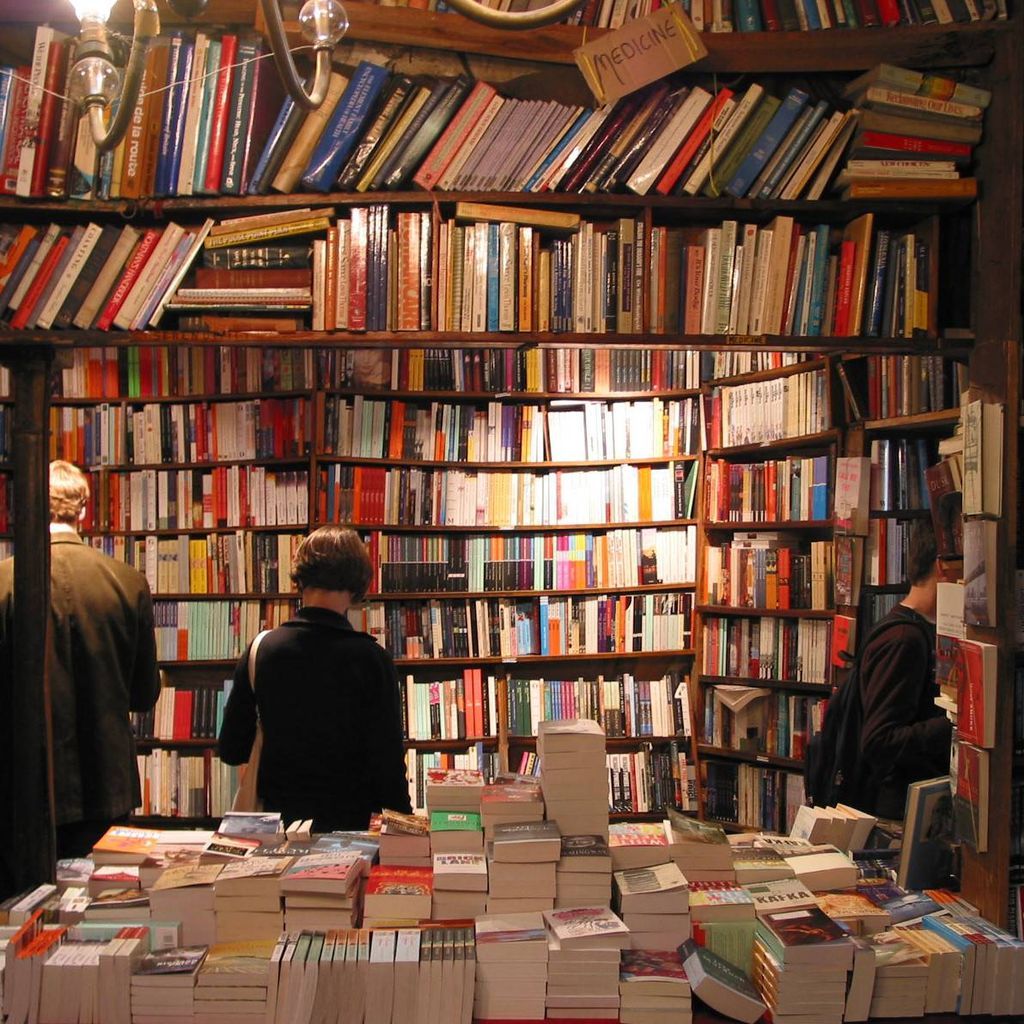
Booksellers Made Me Do It: The Bookstores That Inspired My Literary Career
This is a guest post from Amy Stewart. Amy is the author of Girl Waits with Gun and six works of nonfiction, including the New York Times bestsellers The Drunken Botanist and Wicked Plants. She and her husband own Eureka Books in Eureka, CA. Find her at www.amystewart.com. Follow her on Twitter @Amy_Stewart.
____________________
At each stop on my book tour, someone asks what inspired me to write my novel. I have a ready answer to that question—every author does—but as I travel around from one bookstore to another, I wonder why no one ever asks this instead: What bookstore inspired you to write your novel?
All of my most unlikely book ideas were born in independent bookstores. I imagine this is true for many authors. Do booksellers have any idea what they’ve instigated?
Bookshop Santa Cruz was my weekend hangout when I was twenty-five and wishing I knew how to be a writer. I bought literary journals, poetry, novels, and gardening books—and somehow, out of that, came the idea that I could write a memoir about digging holes in the ground and putting plants in them. Once the book was underway, I was back, searching for essay collections and memoirs that might teach me something about how to actually write it. Later, I went looking for the reference section to find advice on agents and publishing. Mostly, though, I would just sit in an armchair, surrounded by all those books, and tell myself, “Other people write books. This is not impossible. There is room for one more book this world.”
It’s your fault, Bookshop. I quit my day job because of you. Then look what happened:
The Strand propelled me into a book on earthworms, by offering up an aged and antiquated edition of Charles Darwin’s classic work on worms, On the Formation of Vegetable Mould. It was Darwin’s weirdest and most charming book, featuring droll descriptions of the august scientist taking a flower pot filled with earthworms into his study to play piano for them. He was trying to test their sense of hearing, but I think he also just liked having an audience. I thought: If Darwin can write a book about playing piano for earthworms, and a bookstore in New York can still care about that book over a hundred years later, then maybe, just maybe, there’s a place for one more treatise on worms. Reasonable minds could disagree about that, but I wrote it anyway.
Northtown Books, a feisty independent bookstore near my house in Humboldt County, CA, stocks an unusually diverse selection of books on illegal, immoral, and intoxicating plants, as befits our justifiably famous local marijuana crop. I stopped in one day with the germ of an idea about shocking and subversive plants, and walked out with every book they had on the subject. By the end of the day I had a list of villainous trees, murderous shrubs, and hallucinogenic herbs. If you want to know how to kill somebody or get arrested with a plant—well, now there’s a book about that, and Northtown bears the responsibility.
And this book? My new novel, Girl Waits with Gun, was born at Powell’s. I’d already begun my research into the true story that inspired the book, but I still wasn’t sure exactly what to do with it. I happened to be living in Portland for two months for a teaching gig, and I spent hours at the Powell’s mothership on Burnside, trekking through the true crime section, into women’s history, and then on to labor movements and World War I and law enforcement, detouring through manuals on pigeon-keeping and vintage sewing machines and German cooking, and—finally—into historical fiction and crime fiction.
After wandering through all those sections, I looked through the stack of books I’d gathered up and thought, “Well, if all these ideas can exist under one roof, surely I can fit them all into one book. How hard could that be?” That’s all it took to make it possible to go home and start yet another impossible-sounding project.
It’s your fault, bookstores, for stubbornly holding on, for reminding writers and would-be writers of the possibilities, and for keeping one slim space available on a shelf somewhere so that we can work up the nerve to fill it.














